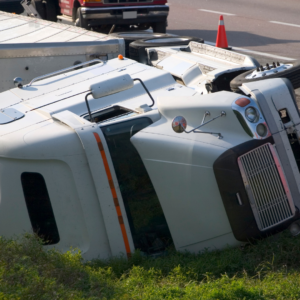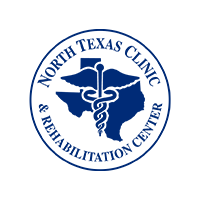
Many people believe that a certain amount of pain and injury is just a part of life. We learn to live with it, even when we shouldn’t. But on-the-job injuries shouldn’t be a part of your day-to-day, and they can happen anywhere.
Whether you operate heavy machinery, do a lot of physical labor, or work at a desk, every job comes with risks and potential injuries.
Those injuries should be treated because they can lead to lifelong pain and suffering. Nobody should have to live with that, no matter what their financial situation is.
Furthermore, on-the-job injuries aren’t always obvious, and many people don’t know they may qualify for personal injury or workers’ compensation for their pain. So, before we look at different types of occupational injuries, you might wonder when an injury is considered work-related.
What Qualifies as an On-The-Job Injury?
Rules regarding on-the-job injuries vary by state and by the type of coverage a company has.
In Texas, private companies are not required to carry workers’ compensation and may have their own rules about what qualifies as a work-related injury and how to file a claim. However, any injury or illness that occurs while you are at work or performing a work-related duty will typically be covered by your company’s insurance.
There are exceptions, though.
If the injury or illness occurred due to:
- Intoxication or use of illegal drugs
- Horseplay or misuse of company equipment
- Failure to abide by safety regulations or use safety equipment
Insurance may deny your claim, and the cost of your care will be out-of-pocket.
That said, even if whatever happened was your fault, you should always file a claim with your employer and seek medical care. Your health and well-being are too important to ignore an injury for fear of it not being covered by your employer.

Types of On-The-Job Injuries
When most people think about the types of injuries that can occur at work, they often think about dangerous jobs such as construction work or tree trimming.
But injuries and illnesses can happen anywhere. Regardless of how minor it might seem, anything that can or might cause pain and discomfort deserves treatment.
These common on-the-job injuries can occur no matter where you work.
Slips, Trips, and Falls
Some people are more accident-prone than others, and small slips probably aren’t worth a trip to the doctor.
But slips, trips, and falls are a real danger to employees, especially when they are preventable with better workplace maintenance. Wet floors, loose carpeting or tiles, obstacles left on the floor, and other hazards can all lead to unfortunate falls or slips.
Some falls cause immediate and obvious damage, such as deep bruises, sprains, broken bones, or scrapes and cuts.
With others, the pain may not be immediately noticeable. However, even seemingly minor slips can cause small strains in your muscle, leading to soreness and discomfort for days or longer.
If you’ve experienced a slip or fall, even a small one, notify your employer. If you experience pain that doesn’t go away after a week or gets worse, update your company and request medical treatment.

Repetitive Strain and Overexertion
Over time, your body may start to react negatively to the everyday movements you do for your job. That’s why even something like office work can begin to cause on-the-job injuries that require treatment.
Repetitive strains happen when you’re making the same movements and holding the same positions throughout your day. These actions, such as computer work or stocking groceries, can lead to painful conditions, including carpal tunnel, tendonitis, and bursitis.
Overexertion occurs when you put too much strain on your body, either all at once (like lifting a too-heavy object) or over time (carrying something back and forth).
Too much strain makes your muscles tired and vulnerable to tearing, causing pain, inflammation, and weakness.
Repetitive strain and overexertion injuries can be more challenging to report because they often happen over time. But as soon as you realize the pain is there, let your employer or healthcare provider know.
Cuts, Wounds, and Trauma from Objects or Machinery
Whenever you work with machinery or equipment that moves, has moving parts, or has sharp edges, there is a risk of injury.
Everybody from construction, factory, and agricultural workers to kitchen staff may be exposed to cuts, wounds, and blunt trauma from their tools and moving machinery.
These injuries can range from minor to deadly, but you should inform your supervisor about even small ones. They may need to address a safety issue, or you might eventually need medical care due to infection or slow healing.

Moving Vehicle Accidents
You know that automobile accidents happen every day. And if you drive as part of your job, that’s a serious potential risk.
Any accident you have while performing a work-related duty, whether in a company vehicle or your own, may be covered by workers’ compensation or a personal injury claim.
Moving vehicle accidents don’t just happen in cars, though. They can also occur on tractors, forklifts, bicycles, and other vehicles. You can sustain injuries from falling off of them, being hit or run over by one, or from broken or badly maintained parts.
Exposure to Harmful Environments
Being around certain harmful substances and environments may be impossible to avoid at work.
You may work with or around:
- Loud noises
- Electricity
- Fire, explosives, or flammable materials
- Harmful chemicals
- Extremely hot or cold temperatures, either inside or outside
- Potentially dangerous people or animals
- Contagious diseases (including COVID-19)
- Intense stress or traumatic situations
While these situations may be impossible to avoid, your workplace should have safety measures in place to prevent or care for any injuries, illnesses, or trauma that can occur.
Regardless of safety or adherence, you should report any illness or injury that may have happened because of your job to your supervisor. Some issues can be challenging to prove that they are a direct result of your workplace, such as an infectious disease or stress-related illness. Even in those cases, it’s still vital to let your company know so that you can take the appropriate steps to file a claim.

Don’t Ignore On-The-Job Injuries
No matter what kind of pain or illness you’re experiencing, not getting the proper care can lead to prolonged suffering, more extended time out of work, and potentially even lifelong consequences.
We understand that money can cause a barrier to getting medical treatment. But you shouldn’t be on the hook for the cost if your pain happens at work.
You deserve care, and visiting a qualified personal injury and workers’ comp clinic will help make sure you get all the assistance you need. We don’t just treat the pain; we also help you handle the paperwork, make sure you have the correct documentation, and provide attorney referrals as needed.
While you may get better and heal on your own, it’s always best to play it safe when it comes to on-the-job injuries. The quicker you report it and seek treatment, the faster you can return to normal.






